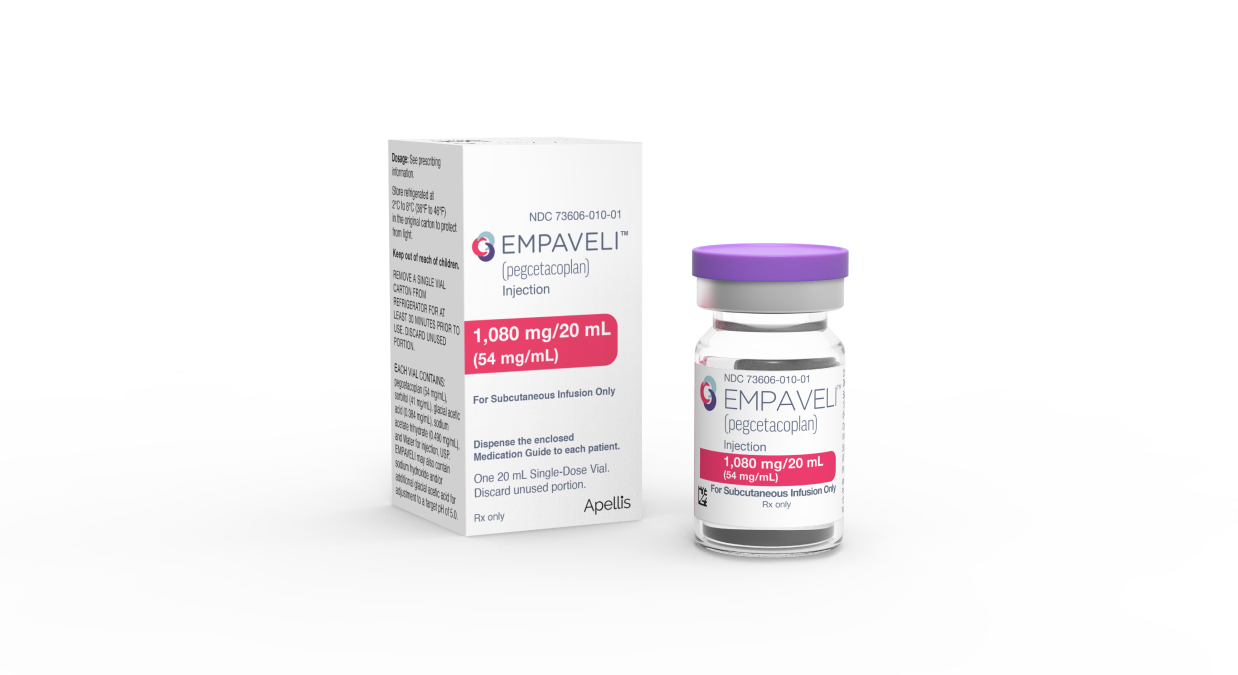Apellis Receives FDA Approval For EMPAVELI® (Pegcetacoplan) As The First-Ever Therapy For C3G And Primary IC-MPGN In Patients 12 Years And Older
EMPAVELI approved for treating rare kidney diseases C3G and IC-MPGN, offering new hope to patients with limited options.
Breaking News
Jul 30, 2025
Vaibhavi M.

Apellis Pharmaceuticals, Inc. has announced that the U.S. Food and Drug Administration (FDA) has approved EMPAVELI® (pegcetacoplan) as the first-ever treatment for patients aged 12 and older with C3 glomerulopathy (C3G) or primary immune complex membranoproliferative glomerulonephritis (IC-MPGN), two rare kidney diseases that together affect approximately 5,000 people in the United States. The approval is specifically for the reduction of proteinuria, a key marker of kidney damage in these conditions.
The FDA’s decision is based on data from the Phase 3 VALIANT study, which demonstrated significant and consistent benefits for patients treated with EMPAVELI. Over six months, the study showed a 68% reduction in proteinuria in patients receiving EMPAVELI compared to placebo, achieving the study’s primary endpoint with strong statistical significance (p<0.0001). In addition to reducing proteinuria, EMPAVELI helped stabilize kidney function, as measured by estimated glomerular filtration rate (eGFR), with a nominal p-value of 0.03.
Another important finding was the clearance of C3 deposits in the kidneys—71% of patients treated with EMPAVELI achieved complete removal of these deposits, as measured by zero C3 staining intensity (p<0.0001). These benefits were observed consistently in both adolescent and adult patients, including those who experienced a recurrence of C3G after a kidney transplant. The results support the role of EMPAVELI in modifying the disease process, offering hope for improved outcomes in a patient population with very limited treatment options.
Carla Nester, M.D., MSA, FASN, lead principal investigator for the VALIANT study, professor of internal medicine and pediatrics and director of pediatric nephrology, University of Iowa Stead Family Children's Hospital, stated, “I’m excited to now have a highly effective therapy for a broad range of patients living with C3G and primary IC-MPGN. With standard of care, patients living with these rare and severe diseases frequently progress to kidney failure, necessitating lifelong dialysis and/or a kidney transplant. Given the urgent need, particularly in children, the approval of EMPAVELI marks a pivotal moment in the treatment of rare kidney diseases.”
Cedric Francois, M.D., Ph.D., co-founder and chief executive officer, Apellis, said, “EMPAVELI has the potential to be truly transformational for patients with C3G and primary IC-MPGN, who until now have had very few treatment options. In the largest pivotal study of these diseases, EMPAVELI demonstrated its potential to preserve kidney function by controlling all three key markers of disease. As Apellis’ third approval in four years, this milestone underscores the unique ability of targeting C3 to improve patients’ lives. We are deeply grateful to everyone who made this approval possible and look forward to building on this momentum as we advance pivotal studies of EMPAVELI in other rare kidney diseases.”
Josh Tarnoff, chief executive officer, NephCure, mentioned, “The approval of EMPAVELI is a historic milestone for people living with C3G and primary IC-MPGN, many of whom are adolescents or young adults. We recognize Apellis’ commitment to these patients and their families, and to the research and innovation that will bring this life-changing treatment into the hands of patients that need it most.”
EMPAVELI’s safety profile has been well-established, with over 2,200 patient-years of data across all approved indications. In the VALIANT trial, the most common adverse reactions reported in 10% or more of patients were infusion site reactions, fever (pyrexia), nasopharyngitis, influenza, cough, and nausea. This FDA approval marks a significant milestone for Apellis and the broader nephrology community, introducing the first approved therapy for these rare and serious kidney disorders and expanding the potential reach of complement inhibition therapies in renal diseases.
